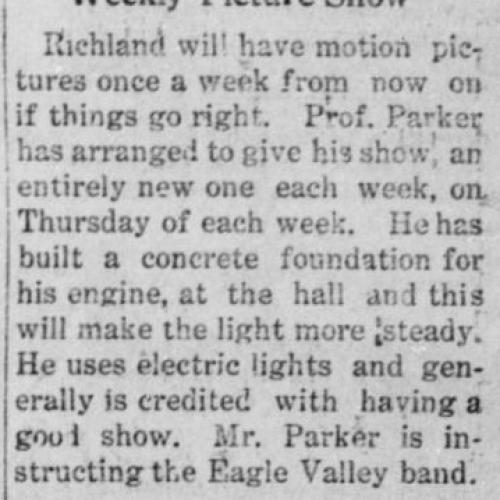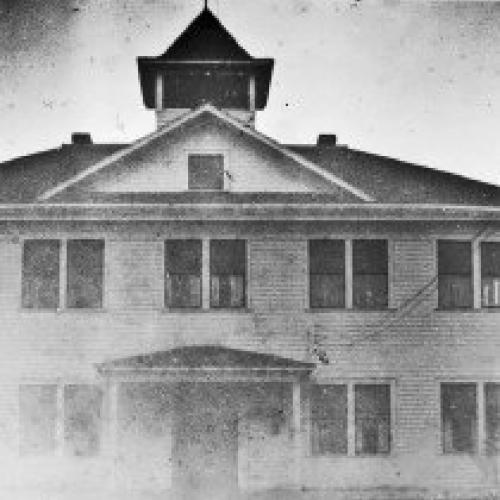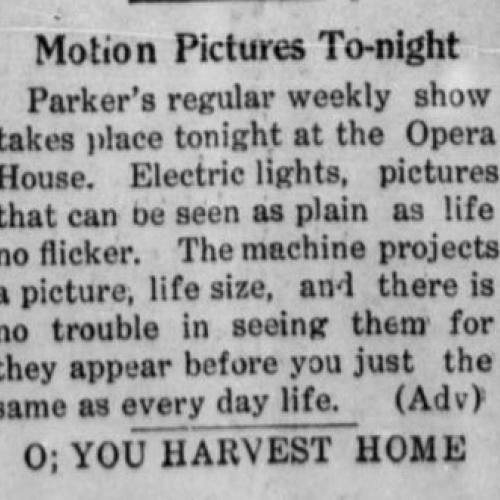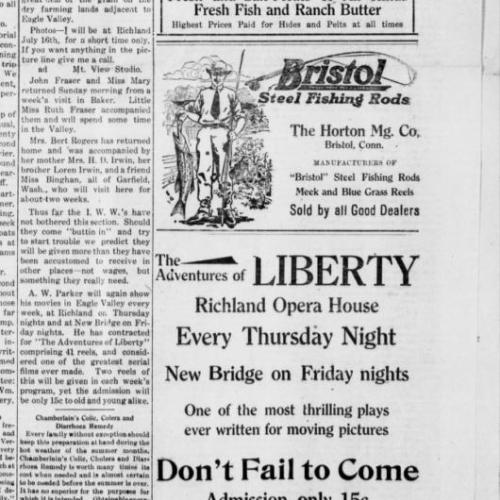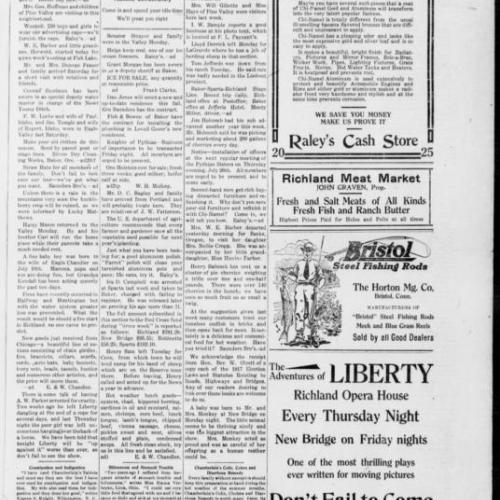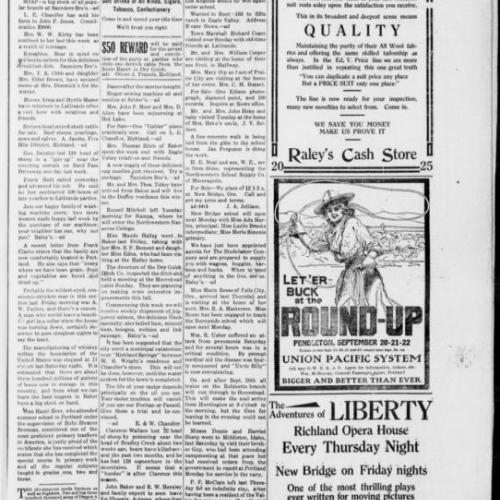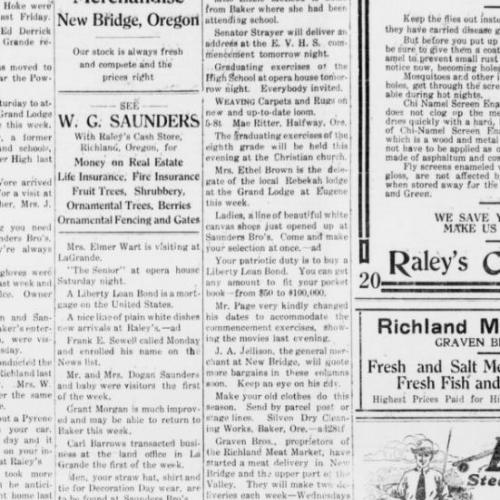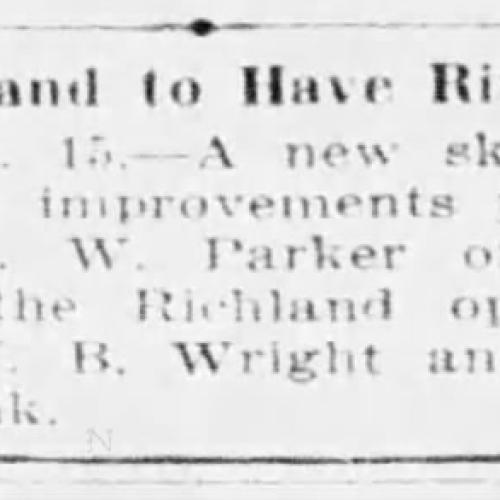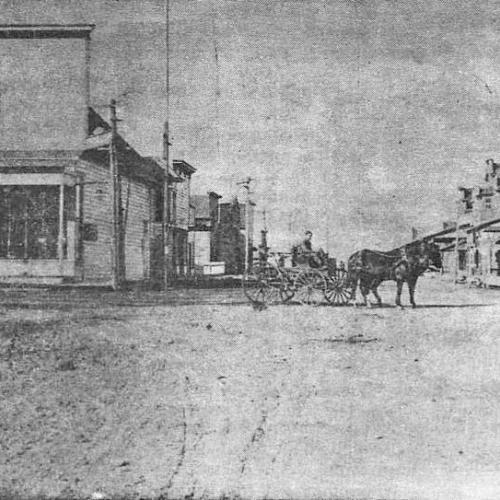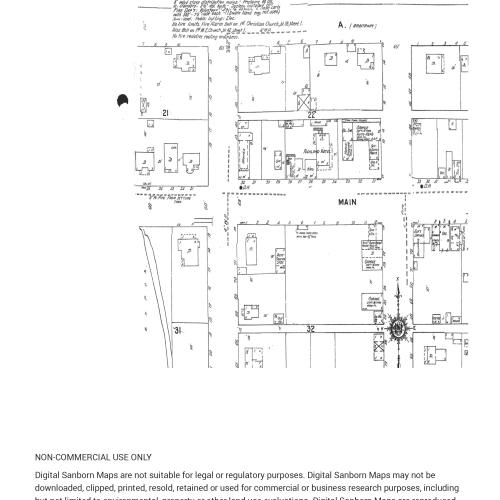Founded in 1901, Richland, OR is situated forty-two miles northeast of Baker City, OR. The town census precinct that Richland falls into, which included Richland proper and the surrounding area, had a population of 593 in 1920 (1) (2).
The Richland Opera house, located on the town's Main Street, was used as a theater by Arthur William Parker every Thursday night (3). Mr. Parker was the band instructor at the local school, and the school bands often accompanied other events at the opera house (3). Parker frequently brought his show to the neighboring town of New Bridge on Friday, and his screenings were often the talk of both towns (4). Motion picture theaters were common in the cities of Baker and La Grande, but due to their distance from Richland (approximately 42 and 80 miles respectively), they were largely inaccessible to the more isolated citizens of Richland.
“Parker’s Movies” were usually advertised in Richland’s local paper, the Eagle Valley Observer. In addition to these advertisements, the paper often had articles discussing the community’s reception of the last week’s show. Motion pictures shown in the theater included The Adventures of Liberty, more widely known as Liberty, news reels, Charlie Chaplin shows, and more (5)(6). The serialized drama The Adventures of Liberty was especially popular, so much so that in 1917 J.V. Selders, who was leasing the Richland Opera House, had to arrange to have more seats added to accommodate the crowds (7). The serial’s weekly cliffhanger often frustrated the community, leading to articles in the Eagle Valley Observer that described “talk of having A.W Parker arrested for cruelty”, and Parker as “[wild]-eyed and conscience-stricken” for his supposed treatment of the heroine in Liberty (8). Parker began showing the 41-reel serial in July 1917 and the showings continued for several weeks. It is believed that no copies of Liberty survived, despite its immense popularity (9).
In addition to weekly motion picture screenings, the Richland Opera house hosted a variety of dances, fundraisers, educational forums and more. Many of these events were advertised in the Eagle Valley News. Some notable events included a group of Pacific Islanders visiting the city, a fundraiser for the Junior Red Cross, and commencement exercises for the local school (10) (11) (12).
Unfortunately, the Richland Opera House’s history is mostly chronicled through the local Eagle Valley Observer, which is available from the University of Oregon’s newspaper archives through 1919. A local city directory from 1920 lists the Richland Opera House as Richland’s movie theater and lists A.W. Parker as the proprietor, and we know that the Opera House building was purchased by Parker in 1919 with the intention of converting it into a roller-skating rink (13)(14). It is unclear when the building’s time as a theater ended, but we know that “Parker’s Movies” captivated Richland for the brief time they were shown.
